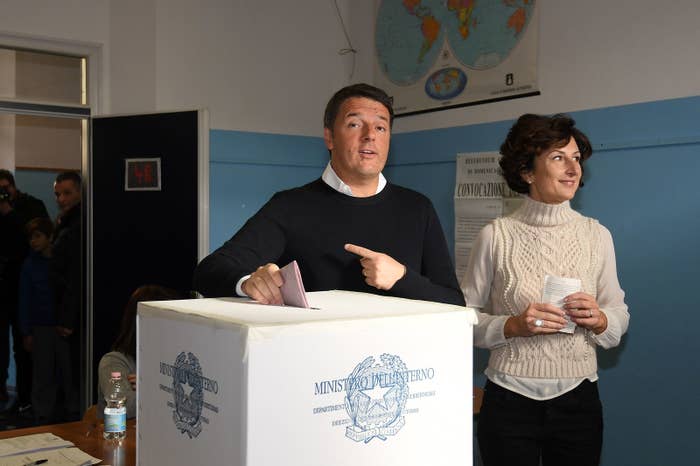
Italian prime minister Matteo Renzi has announced that he will resign, with Italy becoming the latest European country to be plunged into a political crisis by an anti-establishment surge.
On Sunday, Italians overwhelmingly rejected a referendum on a set of constitutional reforms over which the prime minister had staked his political career.
In a press conference held two hours after polls closed, Renzi told reporters: "In Italian politics nobody ever loses – they may not win but they never lose. After every election nothing changes. I am different. I lost and I say so loudly even if a bit choked up because I am not a robot ... I wanted to abolish the too-many seats in politics, I wasn't able to, so the seat that will go is mine."
The No campaign was driven primarily by the far-right Northern League and the populist Five Star Movement (M5S). Both parties have pledged to hold a referendum on the euro. In the wake of Sunday's result, Northern League leader Matteo Salvini and M5S chief Beppe Grillo both called for early elections.
On his blog, Grillo called for the vote to be held with an adjusted version of the existing electoral law. Until recently, Grillo and the M5S had opposed this law, describing it on multiple occasions as fascist.
Sunday's proposals were rejected by some 20 points, with No winning 59% of the vote.
Salvini linked the result to his party and to Donald Trump's election last month, as well as to Russian president Vladimir Putin and France's far-right Front National leader Marine Le Pen.
Viva Trump, viva Putin, viva la Le Pen e viva la Lega! https://t.co/r8FXztp9Am
Le Pen was one of the first politicians to take to Twitter to congratulate "her friend" for the victory.
Bravo à notre ami @matteosalvinimi pour cette victoire du NON ! MLP #referendumcostituzionale
The most recent Italian polls show that any election will likely be a three-horse race between the centre-left Democratic Party (PD), the M5S, and the centre-right and right-wing bloc of parties that includes the Northern League.
Renzi will formally tender his resignation to Italian president Sergio Mattarella on Monday. The president will then consult with parliamentary parties before appointing a new prime minister.
It is unclear whether Renzi will continue to lead the PD.
One of the first tasks of a new government is likely to be a new electoral reform, as the one passed by the current administration was dependent, in its current form, on the referendum’s approval, making any snap election difficult.
Any new government will also be tasked with passing a package of stability measures, and will also have to to deal with Italy’s ongoing banking crisis and the burden of the banks' bad debt.
Turnout was around 70%, and particularly high in Northern League and M5S strongholds.
